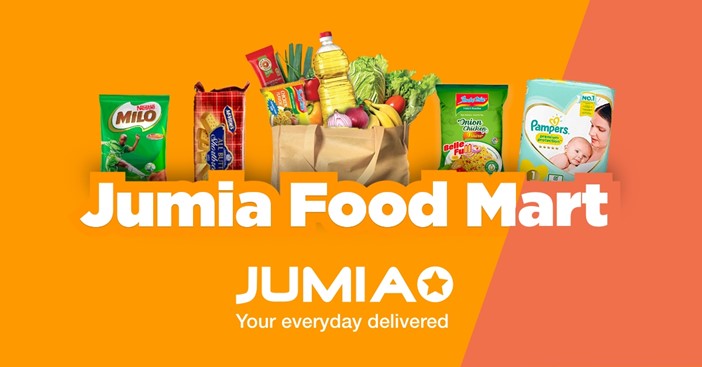Quick commerce (q-commerce), the instant or rapid delivery of ordered products to customers, is gradually taking over standard delivery options offered by e-commerce businesses. Global names like Glovo, Delivery Hero, and Gorillas have experience business growth in their exploration of the q-commerce market, with Gorillas achieving unicorn status within 9 months of operation. Jumia, Africa’s e-commerce giant, now joins the list of q-commerce operators with its recent launch of Jumia Food Mart in Nigeria.
Jumia Food Mart is a q-commerce store designed to meet the increasing demand for rapid delivery services in Nigeria. Jumia has set a maximum delivery time of 20 minutes for all the orders processed on its new platform, in line with global q-commerce practices.
Jumia Food Mart will operate in over 5 locations in Lagos including Opebi, Alausa, Lekki, Ikoyi, and Victoria Island. At this initial stage, it will offer customers free delivery for up to 4,000 popular items and FMCGs from leading local and global brands.
“We’re excited to bring quick commerce to Nigeria and continue to deliver an amazing experience to our consumers. Consumer behaviour and lifestyles are changing with speed and convenience becoming more important than ever. It’s a great achievement for our logistics team who resolved many challenges to make it happen,” Jumia Nigeria CEO, Massimiliano Spalazzi, said in a post.
“We believe that Jumia’s quick commerce offering meets our consumers’ demand for convenient, fast delivery of everyday products especially in this post-COVID era. Our micro fulfiment centres within neighbourhoods will enable us to deliver to consumers in rapid time,” he added.
The global success of q-commerce is tied to the innovation that e-commerce startups have made to their last-mile delivery processes. Some firms use dark stores, which are micro warehouses strategically distributed across their customer base locations. Others engage already existing retail outlets and access their inventory to complete orders. The Jumia q-commerce backend will closely mirror the dark stores approach. Their micro fulfillment centres will be located near the customers they intend to serve.
“With a young population and emerging middle class, Nigeria’s consumers are eager to have access to the quick commerce revolution they see across the world. Jumia is the first to introduce quick commerce at this scale in Lagos, and we’re excited about the future opportunities and possibilities in Nigeria,” said Zachary Dyce, Jumia’s Head of Dark Stores.
Jumia’s foray into q-commerce seems to have been in the company’s pipeline for quite some time and this new development explains some of the company’s recent business moves. For example, last month, the e-commerce giant entered into a partnership with Errand360, a Lagos-based bicycle delivery company known for its local reach.
Groceries and everyday essentials are the most requested category of products on Jumia; it made sense to launch a q-commerce offering to optimise sales in that sub-niche.
Since the e-commerce surge in 2020, caused by the COVID-19 pandemic, Jumia has witnessed a big shift in consumer behaviour towards everyday products. Jumia is now exploring the potential of this market, leveraging e-commerce innovations and ensuring a better experience for its customers. With this move, the e-commerce giant is ready to inscribe in even more hearts that it is the true king of e-commerce in Africa’s most populous nation.




















